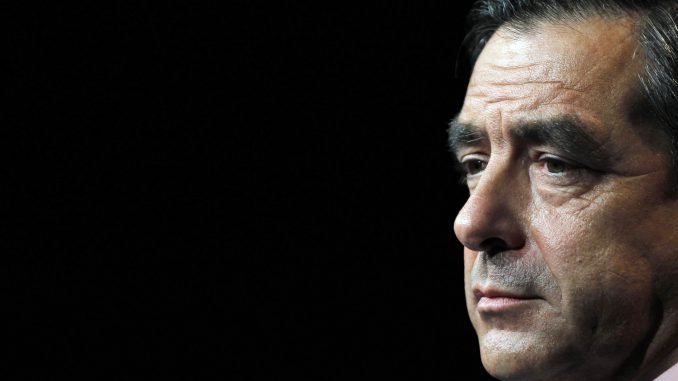
Lithuanian diplomats say the French right wing took the pro-Russian stance in the presidential campaign, while the left-wing Socialists hold a central stance that benefits Lithuania more.
Marine Le Pen in the far right has long demonstrated her friendliness to Russian President Vladimir Putin, furthermore, has taken a loan from a Russian bank and pledges to hold a referendum on the country’s withdrawal from the European Union (EU).
Ex-PM Fillon, who was nominated as the presidential candidate of the moderate right wing on Sunday, has been also talking about closer ties with Russia.
He has called for sanctions on Russian to be lifted, adding that it was the NATO enlargement that provoked Moscow and calling for a joint coalition with the Kremlin against the ISIS group.
The Russian media has dubbed him a Moscow friend, and another ex-PM Alain Juppe whom Fillon defeated in preliminary elections on Sunday has also criticized him for excessively close ties with Putin.
“The picture is nothing to be excited about. The statements by Fillon are intimidating to the Baltic states, which are afraid of Russia’s aggression,” Margarita Šešelgytė, associate professor at the Vilnius University’s International Relations and Political Science Institute, told BNS.
Fillon, 62, on Sunday triumphed in the preliminary elections held for the first time to elect the candidate of the Republican Party and its allies. He is now considered the most likely aspirant for French presidency.
Some Lithuanian officials say Fillon in France stands for a solid and dignified politician whose election campaign focused on economic reforms far more than on foreign policy, therefore, is not expected to make any sudden dangerous moves as Le Pen.
Vykintas Pugačiauskas, foreign news editor at the national broadcaster LRT, has warned that Fillon’s victory “could accelerate Europe’s movement towards self-destruction.”
“He chose practical benefits – votes – over fundamental values, i.e., he considers the Syrian dictator who murdered quarter of a million of his residents to be his ally against Islamists, proposing to pander to the Russian president who started two wars and annexed part of a neighboring country’s territory, as well as to restate his lies about NATO enlargement, and when it comes to migration, he seeks to secure decisions running counter to European agreements – the decisions may set Paris against Berlin and trigger a new severe crisis within the EU,” Pugačiauskas told BNS.
In his words, fears of voters about migration, terrorism and economy are legitimate and should finally get a political response, “however, when a candidate of a traditional party in a country, which founded the EU, stands hand-in-hand with populists, at least in his campaign, his victory may bring the EU and NATO to their collapse.”
Lithuania’s former defense minister, Rasa Juknevičienė of the conservatives, described Fillon as “the prime minister of the Mistral project,” recalling the Paris plans of selling warships to Russia. The handover of Mistral-class ships to Russia was canceled by France’s incumbent President Francois Hollande amid the intervention in Ukraine. Hollande has not yet announced his plans in connection to the second term in office.
“In 2010, the minister of defense of the Fillon government wanted to teach me a lesson about Russia. When I warned that the Mistral sale to the aggressive Kremlin was a mistake, he said I was suffering from ‘phantom pain’ after the Soviet rule,” Juknevičiene said in her Facebook feed in response to Fillon ‘s victory.
Fillon visited Lithuania in 2011 as the head of the French government. He was welcomed in Vilnius by then Prime Minister Andrius Kubilius and President Dalia Grybauskaitė. The visit focused on military and energy cooperation. Fillon stated that France’s energy company EDF had refused the Russian proposal of joining the Kaliningrad nuclear power plant project.
After official meetings, Fillon and his wife went to the Benedictine Monastery in Palendriai, northern Lithuania.
Kazimieras Milasevičius, senior prior of the monastery, told BNS Fillon was in contact with the Lithuanian monastery’s mother monastery in France and had a residence near-by.
“Fillon and his wife are Catholic. They were in close contact with the Solesmes Abbey. Our first prior had contacts there. During the visit in Lithuania, he asked for a private visit, to attend a mass and meet with the community,” said Milasevičius.
The bilateral relations between Lithuania and France are officially described as strategic partnership, under a relevant treaty signed by the two presidents in 2009. France is actively involved in the NATO air-policing mission in Lithuania and intends to dispatch a company of troops to contribute to the NATO battalions to be stationed in the Baltic states and Poland. In response to France’s request, Lithuania has sent a few officers to Mali. The bilateral ties have lately been dimmed by the investment of France’s Veolia concern in the Vilnius heating sector.

Be the first to comment